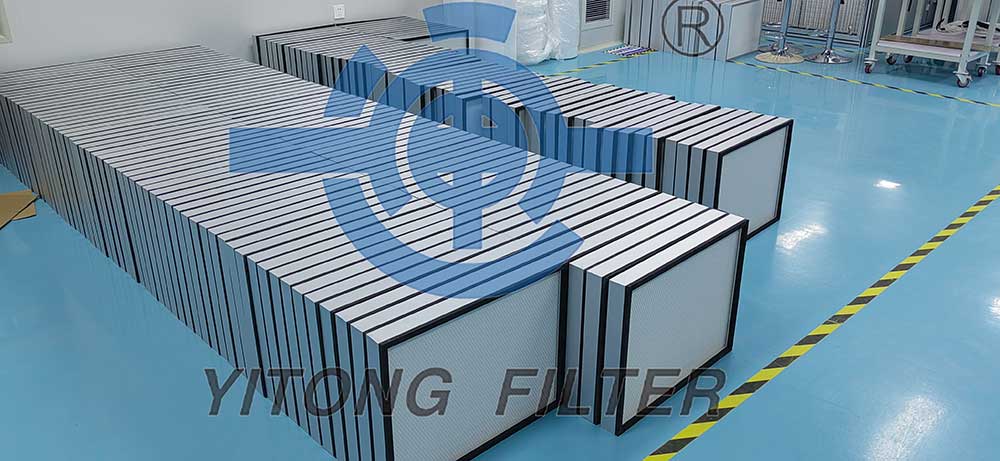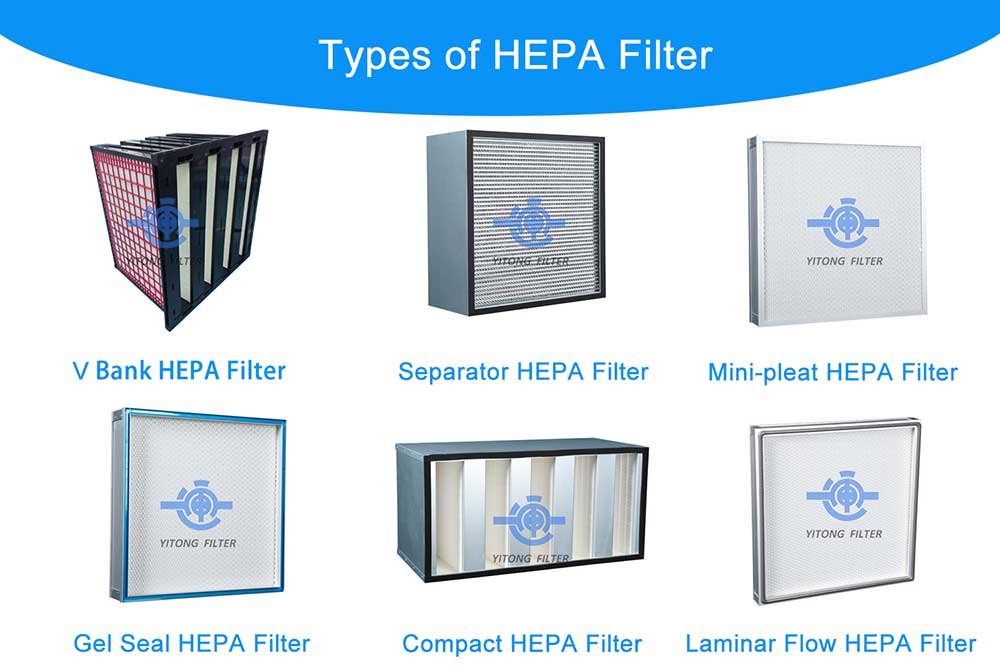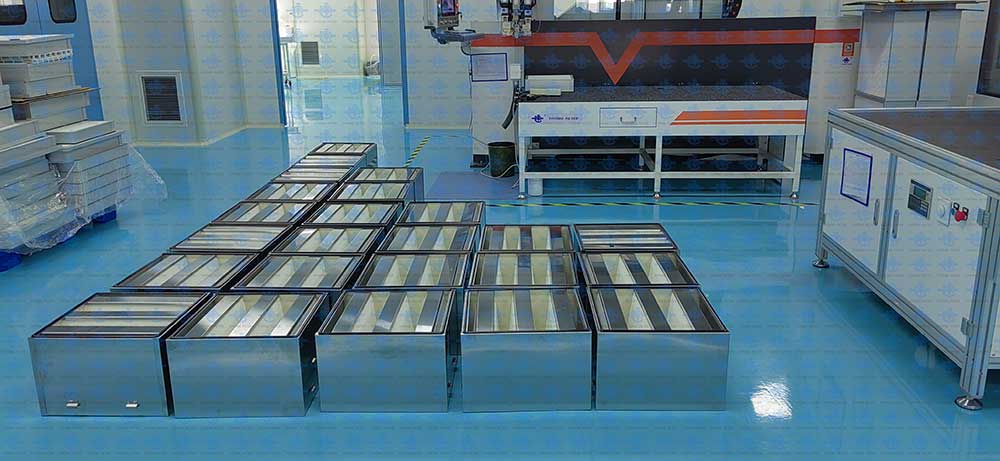 September 24, 2024
September 24, 2024
In today's world, air quality is a big concern for many people. Whether it's allergens, dust, or airborne viruses, we all want the air we breathe to be as clean as possible. This is where HEPA filters come into play. But what exactly is a HEPA filter, and why is it so important for improving indoor air quality? In this post, we will break down everything you need to know about HEPA filters in simple, easy-to-understand terms.

The term HEPA stands for High-Efficiency Particulate Air. These filters are designed to capture at least 99.97% of particles as small as 0.3 microns. To give you some perspective, that's smaller than most bacteria and many viruses! This level of filtration makes HEPA filters one of the most effective tools for particle removal in homes, offices, and even medical facilities.
HEPA filters use a combination of several mechanisms—impaction, interception, and diffusion—to trap tiny particles. When air passes through the filter, particles like dust, pollen, bacteria, and even some viruses get stuck in the dense mesh of fibers. The result? The air that comes out is significantly cleaner than the air that went in.
The air inside your home or workplace could be more polluted than the air outside. That's because pollutants, allergens, and microparticles can get trapped indoors, especially in spaces with poor ventilation. This is why investing in an air purifier with a high-quality HEPA filter is crucial if you want to maintain good air quality indoors.
HEPA filters are incredibly versatile and can remove a wide range of harmful particles, including:
Dust filtration: Helps to remove large dust particles that can trigger allergies.
Pollen removal: Ideal for people suffering from seasonal allergies.
Allergen filtration: Removes pet dander, mold spores, and other allergens from the air.
Bacteria filtration: Captures many types of bacteria that can lead to illness.
Virus filtration: While not 100% effective against all viruses, many HEPA filters can trap viruses due to their small size.
PM2.5 filtration: HEPA filters are effective at removing PM2.5 particles, which are tiny particulate matters that pose health risks.

Not all HEPA filters are created equal. There are different classes of HEPA filters, and understanding these can help you make an informed decision when buying an air purifier or HVAC system with a HEPA filter.
True HEPA Filter: This is the gold standard. True HEPA filters meet strict standards for capturing 99.97% of particles as small as 0.3 microns. Always look for air purifiers that advertise using a True HEPA filter.
HEPA H13: Considered medical-grade filtration, H13 filters are commonly used in hospitals and clean rooms because they offer an even higher level of efficiency, capturing up to 99.95% of particles down to 0.1 microns.
HEPA H14: Even more effective, H14 filters can capture 99.995% of particles as small as 0.1 microns, making them ideal for environments where maximum air purity is required.
HEPA vs. ULPA Filters: While HEPA filters are extremely efficient, ULPA filters (Ultra-Low Particulate Air) go a step further by capturing up to 99.999% of particles down to 0.12 microns. However, ULPA filters tend to have more airflow resistance, which can reduce the efficiency of air purifiers in a home setting.
When evaluating air filters, you might come across the term MERV rating. MERV stands for Minimum Efficiency Reporting Value and is a measure of how effective a filter is at trapping particles of different sizes. A higher MERV rating means the filter can capture smaller particles. Most HEPA filters have a MERV rating of 17-20, making them among the most efficient filters available.
No matter how effective a HEPA filter is, it won’t last forever. The filter replacement schedule depends on several factors, such as air quality, frequency of use, and the type of HEPA filter. As a general rule of thumb, most air purifiers recommend replacing the filter every 6-12 months. However, if you live in a highly polluted area or have pets, you may need to replace the filter more frequently.
When shopping for an air purifier, you’ll likely come across the term Clean Air Delivery Rate (CADR). This is a measure of how quickly the air purifier can clean a specific size of room. Higher CADR numbers indicate faster air cleaning, so if you’re trying to improve air quality in a large room, look for a unit with a high CADR.
While HEPA filters are excellent at trapping particles, they aren’t as effective at removing gases and odors. This is where activated carbon filters come in. Often combined with HEPA filters, activated carbon helps to remove harmful gases, volatile organic compounds (VOCs), and odors from your air, making it even cleaner and more breathable.
If you suffer from allergies or asthma, a HEPA filter can be a game-changer. Because of its ability to remove common allergens like pollen, dust mites, and pet dander, a HEPA filter can reduce your symptoms and improve your overall quality of life. By trapping these particles, the air in your home becomes much safer for people who are sensitive to airborne contaminants.

There are many air purifiers on the market, and not all of them come equipped with a HEPA filter. When choosing an air purifier, make sure it has a True HEPA filter for the best results. Additionally, consider factors like the size of your room, the Clean Air Delivery Rate (CADR), and whether the unit also includes an activated carbon filter to tackle odors and gases.
At the end of the day, using a HEPA filter is one of the best ways to ensure you’re breathing clean, healthy air. Whether you're trying to reduce allergens, filter out harmful particles like PM2.5, or protect yourself from airborne bacteria and viruses, a HEPA filter is an excellent choice. Remember to check the filter replacement schedule, and opt for a True HEPA model for the best results.
So if you haven’t already invested in an air purifier with a HEPA filter, now is the time to do so. You'll not only improve your air quality but also your health and overall well-being.